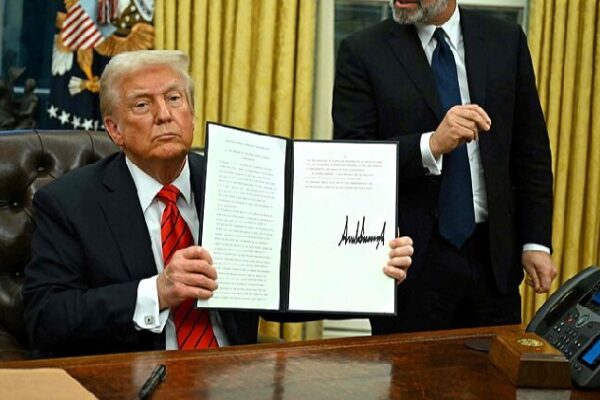The United States has announced new tariffs on imports from Canada, Mexico, and China, raising concerns about rising prices and economic impacts on everyday consumers. Starting March 4, the U.S. plans to impose a 25% tariff on imports from Canada and Mexico and a 10% tariff on goods imported from China.
These tariffs target key materials used in construction, such as lumber from Canada, lime and gypsum from Mexico, and steel and aluminum from China. With construction materials becoming more expensive, housing costs in the U.S. could soar even higher, affecting families already struggling with affordability.
When tariffs increase the cost of imported goods, businesses often pass these costs onto consumers. Each step in the supply chain may see price hikes as companies adjust to the higher import fees. This “trickle-down” effect means that everyday items could become more expensive for American shoppers.
Studies have shown that tariffs can reduce after-tax incomes across all taxpayer groups, hitting lower-income households the hardest. According to the Peterson Institute for International Economics, the proposed tariffs could amount to an annual tax increase of over $1,200 per household—the largest in the U.S. this century.
Inflation is another concern. A recent consumer survey found that Americans expect inflation to rise to 4.3% by 2025, the highest level in years. For many families already dealing with rising costs, additional price increases due to tariffs are unwelcome news.
Moreover, changes to tariff exemptions mean that American consumers might face unexpected fees on small orders from popular retailers that import goods from China. This particularly affects shoppers who rely on affordable items from platforms like Temu and Shein, often used by those with lower incomes.
Experts suggest that imposing tariffs might not be the best way to protect and grow domestic industries. Instead, cooperation and open trade could help countries leverage their strengths. For example, allowing investment and imports from China could boost manufacturing in the U.S. and promote the use of energy-efficient technologies.
History warns against the overuse of tariffs and protectionism. After the Great Depression, similar policies led to a decline in global trade and worsened economic hardships. Repeating these mistakes could fragment the global economy and harm everyone involved.
As global challenges continue to arise, working together may prove more beneficial than closing doors. Open collaboration could help address economic concerns without placing additional burdens on consumers.
Reference(s):
cgtn.com








